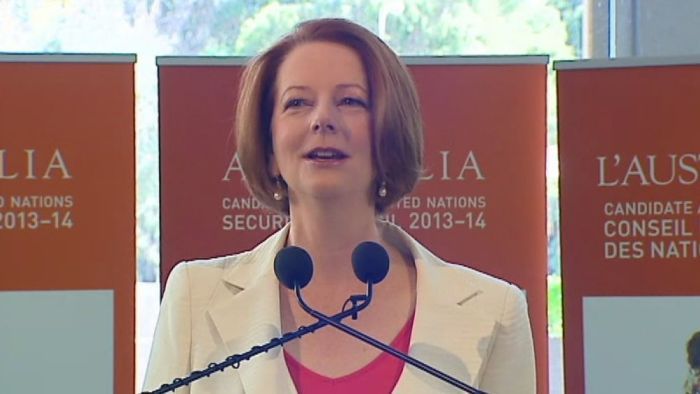
Australia’s Prime Minister Julia Gillard has outlined Asia manifesto, a major foreign policy plan aimed at improving Asian ties.
The government white paper sets out 25 national objectives to be met by 2025, with targets ranging from improving trade links to teaching more Mandarin.
Julia Gillard said she wanted to refocus Australia away from Europe’s “old countries” towards its near neighbors – particularly China and India.
The plan is detailed in a 312-page paper, Australia in the Asian Century.
With Asia on track to become home to most of the world’s middle class in the next 20 years, this was a moment in history to grasp, said Julia Gillard during the release of the white paper at Sydney’s Lowy Institute.
“The scale and pace of Asia’s rise is staggering, and there are significant opportunities and challenges for all Australians,” she said.
“It is not enough to rely on luck – our future will be determined by the choices we make and how we engage with the region we live in.”
While Julia Gillard underlined continued strategic ties with the US, her speech formalized trends built up during the past three decades in which China has become Australia’s top trading partner, ahead of Japan, the US and South Korea.
Previous prime ministers such as Bob Hawke and Paul Keating established the first ties with Asia, but the new policy would be deeper and more organized.
Some of the goals outlined are specific, others more aspirational. They include:
• Boosting Australia’s average national income from $62,000 per person now to $73,000 in 2025
• Improving the school system so it is ranked in the world’s top five, with 10 of its universities in the world’s top 100
• Making studies of Asia a core part of the Australian school curriculum
• Giving all students the opportunity to learn a priority Asian language – Chinese (Mandarin), Hindi, Indonesian or Japanese
• Making sure more business leaders are “Asia-literate”
A member of the 21-member Asia-Pacific Economic Cooperation (APEC) group, Australia is one of the 11 nations involved in negotiations for a Trans-Pacific Partnership (TPP), both of which aim to liberalize regional trade.
On security issues, Australia in the Asian Century says any policy aimed at containing China’s military growth would not work.
Rather, it says Australia can balance its defence ties to the US while backing China’s emerging military strength.